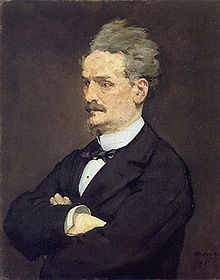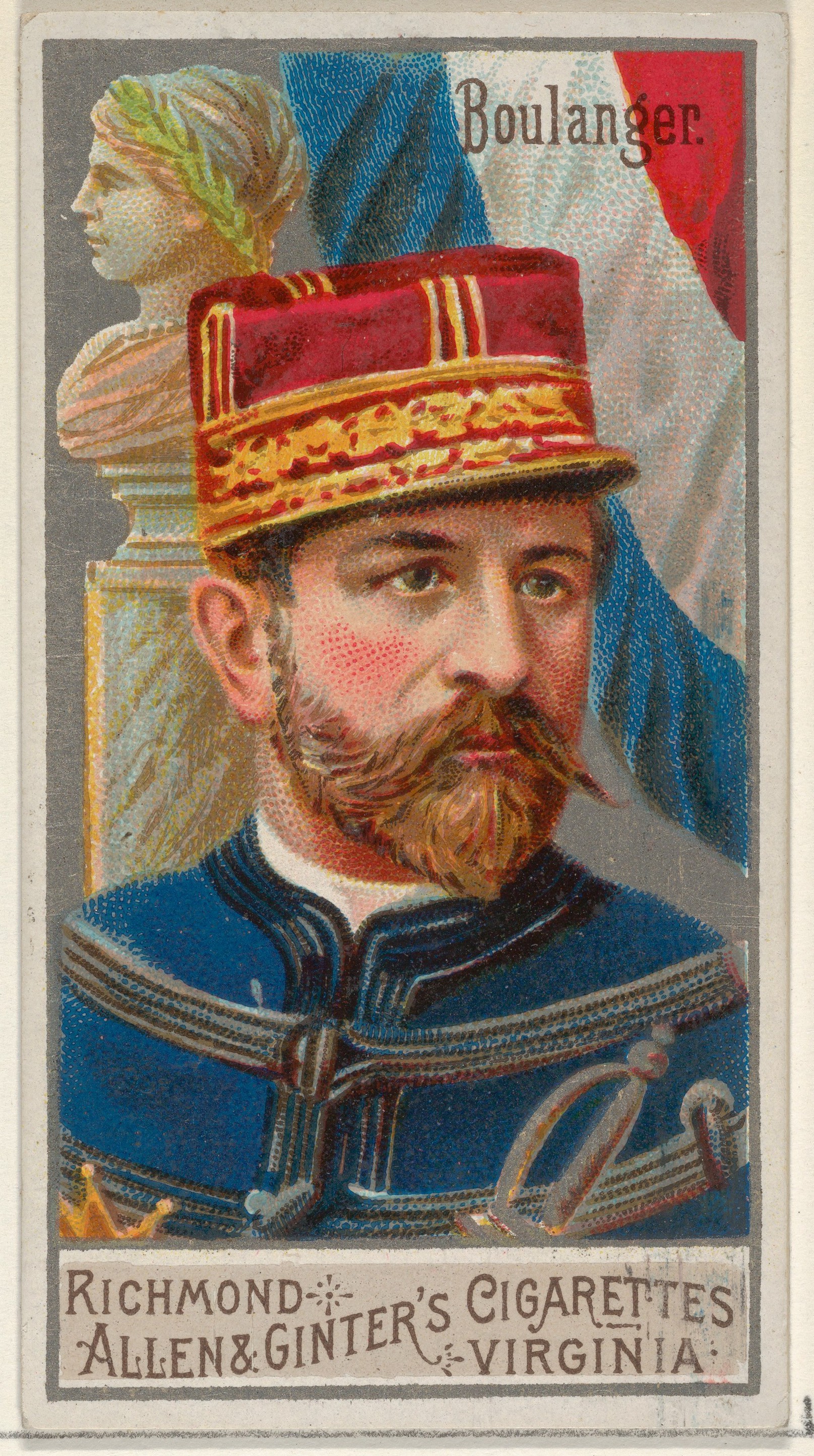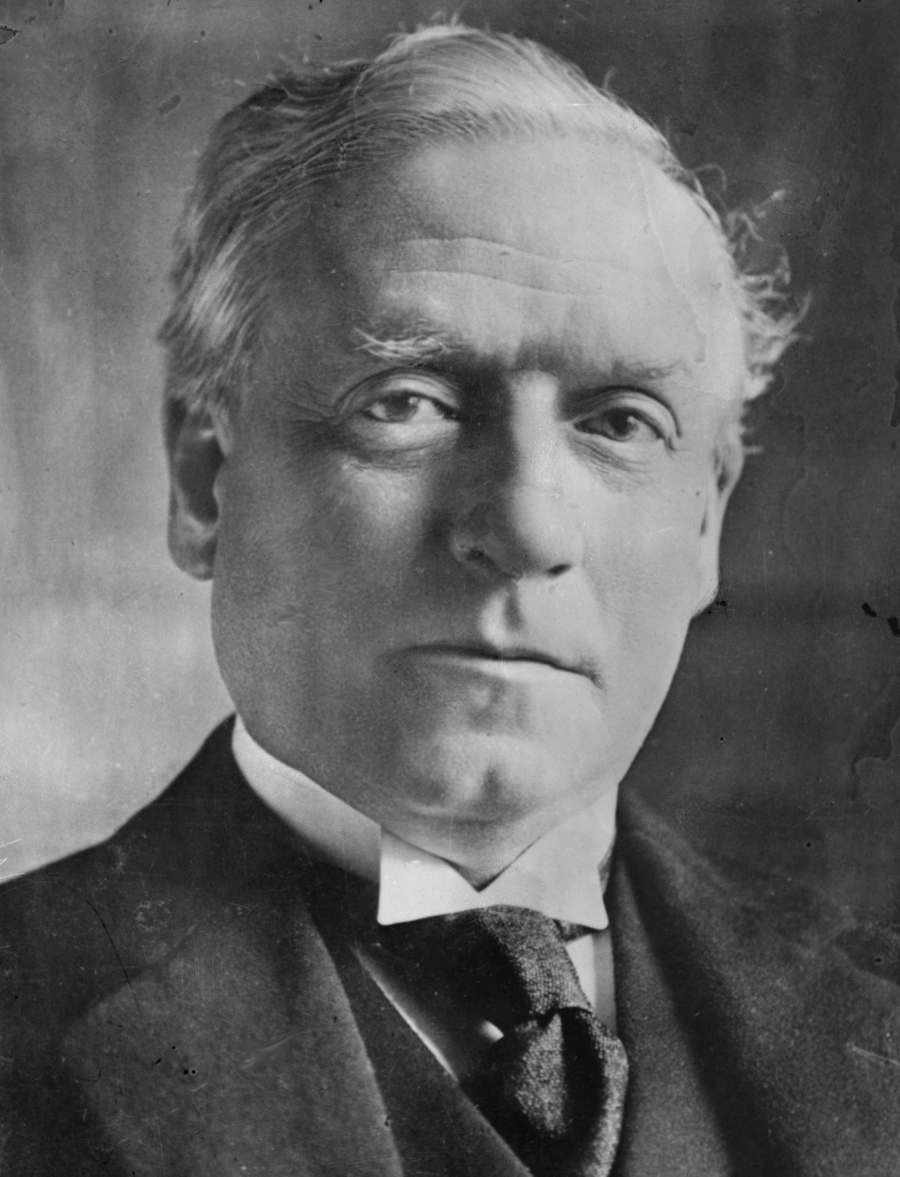Part 5, Chapter XXIX
V, XXIX: "For Shame!"
Chamberlain exited the public view during the ten days emergency period. Stricken with grief at the death of his friend, Henry Drummond-Wolff, he sought answers to rectify the excesses of the previous days.
President-Regent Stanley, therefore, was the most public figure during this time. He visited Norwich, held an audience with Cardinal Manning, attended Drummond-Wolff's funeral, and a memorial held in Manchester for the dead of the March Massacre. His health was deteriorating, and he was visibly ill but kept plodding along. He also visited Chamberlain at Highbury Hall and demanded answers from the Prime Minister.

Funeral of Henry Drummond-Wolff
Chamberlain was forced to question his strategy, which had cost the lives of many innocent men, women, and children. The Union leaders summoned the Premiers of Mercia and England, his son Austen and John Gorst, to provide their responses to the violence. He also summoned Munro, the Head of the Directorate, to explain. The team of Unionist heavyweights all agreed that this was not the intention of the project they had built to restore national unity and vowed to crush the Teal threat finally.
Firstly, they dismissed the Governor of England and the Commissioner of the English and Mercian State Police. After testimony emerged of the involvement of several English and Mercian legislators in the violence, the resignation of 36 state legislators, who were dubbed the "Gang of St George" by the press. Henry Matthews was restored to his position of Home Secretary, vowing to crack down on violence from both sides of the political spectrum.
Finally, a new draft of the Anti-Socialist Laws was produced, more moderate on peaceful organisations within the SDF but harder on irregular bands of terrorists on the left and right - although officially, the organization would remain prohibited. Senator Ruskin was released, along with many who had been placed under house arrest in the aftermath of Drummond-Wolff's assassination. Moderation was the order of the day.
Equally, a purge of the Directorate to remove the most extreme elements was conducted on the President-Regent's orders. The Mercian and English Police were taken under its direct control. Jeremiah Colman was appointed Governor of England with the backing of Premier Gorst, and Chamberlain attempted to appoint Jesse Collings as Governor of Mercia. Still, the latter's relationship with Chamberlain had already been damaged.
Moderates were appointed to key cabinet positions, increasing the influence of the Conservative Party, abhorred by the violence and excesses of radical Unionism in the Government. Men like Senator Cecil, who decried the events two weeks prior, held more authority. Three hundred Teal Guards were detained, and a Parliamentary inquiry was established to examine the failings.
Chamberlain and the President-Regent's relationship had been strained, but in the public eye, many moderates were impressed with the dynamic action of the Unionists to control the masses. Chamberlain returned to public view as the emergency period passed and promised a robust police presence to deter violence and confirmed elections would go ahead in the coming weeks. Austen Chamberlain removed the Unionist whip from a further 15 legislators in Mercia and expelled them from the party.
The expelled legislators stayed firm in believing they acted in the patriotic interest. Across the country, groups agreed that their actions were justified. An element of society, the Legitimist Church, English nationalists, Conservative monarchists, Teal Guards, and ultranationalist Unionist politicians, glorified the events as the "Second Glorious Revolution," a patriotic warning shot to those challenging the English place as the metropole. While they were relatively contained within Mercia and England, other hotspots in Glasgow, Belfast, and Liverpool were home to significant Orange Party organisations.
Critics directed a particular controversy towards Alfred Milner, whom many people in the country hated. They attributed the frenzy whipped up in the leadup to and aftermath of the assassination to Milner's polemics and editorials. Chamberlain defended Milner and advised him to step down from his role as Editor-in-Chief of The Union and instead work for the Colonial Office in South Africa on behalf of Cecil Rhodes, the Prime Minister of the Cape.

Alfred Milner, former Editor-in-Chief of the Union
Around the country, men and women recoiled as newspapers in the Capital and Northern and Celtic states reported on the aftermath and new testimony of the excesses uncovered. Newspapers investigated every element and discovered that many perpetrators were still free men, and no charges had been applied.
Meanwhile, Annie Besant's weekly periodical from the Beehive staff, titled The Sunday Republic, reported that police constabularies rounding up known 'agitators,' as they referred to them in reports, and leaving the cell doors open for local Teal guards to execute them.
One local Catholic priest was killed in this manner in Liverpool, weeks after intervening in a trade conflict between Catholic workers and Protestant owners in favour of the workers in his parish. Catholic policemen and public officials were given an hour 'advanced warning' to go home and lock their doors on the evening of the attack.
A nationwide mourning occurred after the massacres, with public demonstrations and vigils in all the major cities, and as Parliament returned, they saw a confident and passionate liberal leader. It just was not the actual leader. Henry Campbell-Bannerman asserted himself into the debate with an impassioned rebuke of the Government's handling, calling it proof of the "paranoia and ineptitude of a tired ministry with the most horrendous of consequences." Still, he is most remembered for ending the speech by crying out, "For shame!" The Speaker of the House suspended him for the rest of the session after failing to adhere to Parliamentary conduct.
Campbell-Bannerman's story was relayed across the Union, propelling him into the public consciousness. The true-hearted, old Constitutional Era aristocrat advocated for sweeping reforms to stop anything like this from occurring again. He had broad support from much of the left, including the SDF, after he insisted that "Parliament should enforce one act on political parties and associations, the Political Associations Act... the organisation in question supports and engages with the work of Parliament and is therefore legally sound. Nevertheless, more pressingly, the right to one's association is fundamental and inalienable in this view. I see only one party threatening the constitution, the men opposite." Harcourt's interventions weren't nearly as stirring.

Sir Henry Campbell-Bannerman, future Leader of the LDP & President-Regent
The LDP mobilised and won support from people concerned by the country's direction, especially in academia and the middle class. Progressive Unionists, including Collings, began to move their support from Chamberlain to the LDP and bring new ideas about social and constitutional reform.
State-level figures like Herbert Gladstone played a massive role publicly supporting severe action against assassinations and reckless violence. Cities that saw the most minor violence tended to have the highest support for action. As part of the drive for national unity and reconciliation after the massacres, State legislatures reconvened, giving prominent state-level LDP politicians, like Gladstone and the newly-released former Metropolitan Chancellor Thomas Farrer, a similar platform to attack the response to the atrocities. In Scotland, the violence galvanised Irish Catholic support behind the SNDP and against Victor Bruce after a series of letters revealed his complicity in sectarian violence in Glasgow two nights after Drummond-Wolff's assassination.
Belfast had been the centre of much political deadlock after the death of its first Premier, Thomas Bateson. While sectarian violence was comparatively and surprisingly low, there was deep-level collusion between ALO councillors and armed gangs during the violence. During March, a radical wing of the ALO, led by state legislator Edward Carson, advocated for removing residency for all Catholics and SDF members in the Orange State.
Sir Thomas Russell led a liberal faction that supported the continuation of Bateson's conciliatory pragmatism towards non-Orangemen in the State. Although the Russellite and Carsonite groups were considered Monarchists and Orangemen, they eventually drifted apart. Russell called for harsh recriminations for the members involved in the massacres. Unionist Party leaders pressured Russell to become the leader of the ALO, which he did, becoming Premier of the Orange State in April 1892. Following the state election, Russell broke away from the ALO. He founded the Unionist Party of the Orange State (UPOS), with the ALO, now led by Carson, becoming the primary opposition.

Sir Thomas Russell, Second Premier of the Orange State
The March Massacres had two lasting effects on Unionism and the political ideology of the Union as a whole. Firstly, a split within Unionism began to occur in three ways; the hardline, Teal Guard-supporting groups centred around the expelled legislators, the Carsonite wing of the ALO, and Legitimist Churches; the moderate centrist group around Chamberlain now involving a more prominent element of former Tories like Senator Cecil; and the Progressives, who saw the March Massacres as a sign of Chamberlain's over-centralisation of the Unionist project.
Secondly, the robust response of the Unionists prevented further violence in the rest of 1892, which is no mean feat. While Chamberlain arguably shares his share of the guilt, the Government's response jettisoned the extremist elements within the Unionist Party and ended the senseless persecution of moderate Socialists. Despite the upcoming nervous days ahead, internal violence peaked in 1892, and massacres in the style of March would not be repeated. That, in itself, is an achievement for Joseph Chamberlain. The response would enhance his reputation, arguably winning the Unionists the 1892 election.
Chamberlain exited the public view during the ten days emergency period. Stricken with grief at the death of his friend, Henry Drummond-Wolff, he sought answers to rectify the excesses of the previous days.
President-Regent Stanley, therefore, was the most public figure during this time. He visited Norwich, held an audience with Cardinal Manning, attended Drummond-Wolff's funeral, and a memorial held in Manchester for the dead of the March Massacre. His health was deteriorating, and he was visibly ill but kept plodding along. He also visited Chamberlain at Highbury Hall and demanded answers from the Prime Minister.
Funeral of Henry Drummond-Wolff
Chamberlain was forced to question his strategy, which had cost the lives of many innocent men, women, and children. The Union leaders summoned the Premiers of Mercia and England, his son Austen and John Gorst, to provide their responses to the violence. He also summoned Munro, the Head of the Directorate, to explain. The team of Unionist heavyweights all agreed that this was not the intention of the project they had built to restore national unity and vowed to crush the Teal threat finally.
Firstly, they dismissed the Governor of England and the Commissioner of the English and Mercian State Police. After testimony emerged of the involvement of several English and Mercian legislators in the violence, the resignation of 36 state legislators, who were dubbed the "Gang of St George" by the press. Henry Matthews was restored to his position of Home Secretary, vowing to crack down on violence from both sides of the political spectrum.
Finally, a new draft of the Anti-Socialist Laws was produced, more moderate on peaceful organisations within the SDF but harder on irregular bands of terrorists on the left and right - although officially, the organization would remain prohibited. Senator Ruskin was released, along with many who had been placed under house arrest in the aftermath of Drummond-Wolff's assassination. Moderation was the order of the day.
Equally, a purge of the Directorate to remove the most extreme elements was conducted on the President-Regent's orders. The Mercian and English Police were taken under its direct control. Jeremiah Colman was appointed Governor of England with the backing of Premier Gorst, and Chamberlain attempted to appoint Jesse Collings as Governor of Mercia. Still, the latter's relationship with Chamberlain had already been damaged.
Moderates were appointed to key cabinet positions, increasing the influence of the Conservative Party, abhorred by the violence and excesses of radical Unionism in the Government. Men like Senator Cecil, who decried the events two weeks prior, held more authority. Three hundred Teal Guards were detained, and a Parliamentary inquiry was established to examine the failings.
Chamberlain and the President-Regent's relationship had been strained, but in the public eye, many moderates were impressed with the dynamic action of the Unionists to control the masses. Chamberlain returned to public view as the emergency period passed and promised a robust police presence to deter violence and confirmed elections would go ahead in the coming weeks. Austen Chamberlain removed the Unionist whip from a further 15 legislators in Mercia and expelled them from the party.
The expelled legislators stayed firm in believing they acted in the patriotic interest. Across the country, groups agreed that their actions were justified. An element of society, the Legitimist Church, English nationalists, Conservative monarchists, Teal Guards, and ultranationalist Unionist politicians, glorified the events as the "Second Glorious Revolution," a patriotic warning shot to those challenging the English place as the metropole. While they were relatively contained within Mercia and England, other hotspots in Glasgow, Belfast, and Liverpool were home to significant Orange Party organisations.
Critics directed a particular controversy towards Alfred Milner, whom many people in the country hated. They attributed the frenzy whipped up in the leadup to and aftermath of the assassination to Milner's polemics and editorials. Chamberlain defended Milner and advised him to step down from his role as Editor-in-Chief of The Union and instead work for the Colonial Office in South Africa on behalf of Cecil Rhodes, the Prime Minister of the Cape.
Alfred Milner, former Editor-in-Chief of the Union
Around the country, men and women recoiled as newspapers in the Capital and Northern and Celtic states reported on the aftermath and new testimony of the excesses uncovered. Newspapers investigated every element and discovered that many perpetrators were still free men, and no charges had been applied.
Meanwhile, Annie Besant's weekly periodical from the Beehive staff, titled The Sunday Republic, reported that police constabularies rounding up known 'agitators,' as they referred to them in reports, and leaving the cell doors open for local Teal guards to execute them.
One local Catholic priest was killed in this manner in Liverpool, weeks after intervening in a trade conflict between Catholic workers and Protestant owners in favour of the workers in his parish. Catholic policemen and public officials were given an hour 'advanced warning' to go home and lock their doors on the evening of the attack.
A nationwide mourning occurred after the massacres, with public demonstrations and vigils in all the major cities, and as Parliament returned, they saw a confident and passionate liberal leader. It just was not the actual leader. Henry Campbell-Bannerman asserted himself into the debate with an impassioned rebuke of the Government's handling, calling it proof of the "paranoia and ineptitude of a tired ministry with the most horrendous of consequences." Still, he is most remembered for ending the speech by crying out, "For shame!" The Speaker of the House suspended him for the rest of the session after failing to adhere to Parliamentary conduct.
Campbell-Bannerman's story was relayed across the Union, propelling him into the public consciousness. The true-hearted, old Constitutional Era aristocrat advocated for sweeping reforms to stop anything like this from occurring again. He had broad support from much of the left, including the SDF, after he insisted that "Parliament should enforce one act on political parties and associations, the Political Associations Act... the organisation in question supports and engages with the work of Parliament and is therefore legally sound. Nevertheless, more pressingly, the right to one's association is fundamental and inalienable in this view. I see only one party threatening the constitution, the men opposite." Harcourt's interventions weren't nearly as stirring.

Sir Henry Campbell-Bannerman, future Leader of the LDP & President-Regent
The LDP mobilised and won support from people concerned by the country's direction, especially in academia and the middle class. Progressive Unionists, including Collings, began to move their support from Chamberlain to the LDP and bring new ideas about social and constitutional reform.
State-level figures like Herbert Gladstone played a massive role publicly supporting severe action against assassinations and reckless violence. Cities that saw the most minor violence tended to have the highest support for action. As part of the drive for national unity and reconciliation after the massacres, State legislatures reconvened, giving prominent state-level LDP politicians, like Gladstone and the newly-released former Metropolitan Chancellor Thomas Farrer, a similar platform to attack the response to the atrocities. In Scotland, the violence galvanised Irish Catholic support behind the SNDP and against Victor Bruce after a series of letters revealed his complicity in sectarian violence in Glasgow two nights after Drummond-Wolff's assassination.
Belfast had been the centre of much political deadlock after the death of its first Premier, Thomas Bateson. While sectarian violence was comparatively and surprisingly low, there was deep-level collusion between ALO councillors and armed gangs during the violence. During March, a radical wing of the ALO, led by state legislator Edward Carson, advocated for removing residency for all Catholics and SDF members in the Orange State.
Sir Thomas Russell led a liberal faction that supported the continuation of Bateson's conciliatory pragmatism towards non-Orangemen in the State. Although the Russellite and Carsonite groups were considered Monarchists and Orangemen, they eventually drifted apart. Russell called for harsh recriminations for the members involved in the massacres. Unionist Party leaders pressured Russell to become the leader of the ALO, which he did, becoming Premier of the Orange State in April 1892. Following the state election, Russell broke away from the ALO. He founded the Unionist Party of the Orange State (UPOS), with the ALO, now led by Carson, becoming the primary opposition.
Sir Thomas Russell, Second Premier of the Orange State
The March Massacres had two lasting effects on Unionism and the political ideology of the Union as a whole. Firstly, a split within Unionism began to occur in three ways; the hardline, Teal Guard-supporting groups centred around the expelled legislators, the Carsonite wing of the ALO, and Legitimist Churches; the moderate centrist group around Chamberlain now involving a more prominent element of former Tories like Senator Cecil; and the Progressives, who saw the March Massacres as a sign of Chamberlain's over-centralisation of the Unionist project.
Secondly, the robust response of the Unionists prevented further violence in the rest of 1892, which is no mean feat. While Chamberlain arguably shares his share of the guilt, the Government's response jettisoned the extremist elements within the Unionist Party and ended the senseless persecution of moderate Socialists. Despite the upcoming nervous days ahead, internal violence peaked in 1892, and massacres in the style of March would not be repeated. That, in itself, is an achievement for Joseph Chamberlain. The response would enhance his reputation, arguably winning the Unionists the 1892 election.
Last edited:










.jpg)



